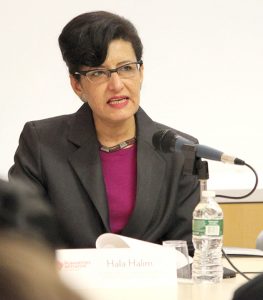MULOSIGE seeks to build relationships with other scholars to critique the work of the project, creating a network of scholars working on world literature and its multilingual aspects. We are grateful for the support and deep insights provided by our critical friends, who are based in institutions around the world.
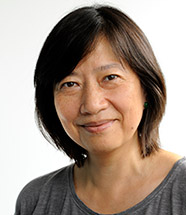 Professor Wen-chin Ouyang (SOAS)
Professor Wen-chin Ouyang (SOAS)
Wen-chin Ouyang is Professor of Arabic and Comparative Literature at SOAS. She completed her BA in Arabic at Tripoli University and PhD Middle Eastern Studies at Columbia University in New York City. Wen-chin has written extensively on classical and modern Arabic narrative and literary criticism. She is the author of Literary Criticism in Medieval Arabic-Islamic Culture: The Making of a Tradition (1997), Poetics of Love in the Arabic Novel (2012) and Politics of Nostalgia in the Arabic Novel (2013). She has also published widely on The Thousand and One Nights, often in comparison with classical and modern Arabic narrative traditions, European and Hollywood cinema, magic realism, and Chinese storytelling.
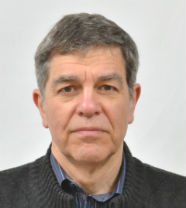 Professor Stefan Sperl (SOAS)
Professor Stefan Sperl (SOAS)
Stefan Sperl is Head of Department of Languages and Cultures of the Near and Middle East at SOAS. He studied Arabic at Oxford and the American University in Cairo and completed his PhD at SOAS. His research interests include classical and modern Arabic literature and comparative literature. Stefan’s publications include The Cosmic Script: Sacred Geometry and the Science of Arabic Penmanship (2014, with Ahmed Moustafa), Mannerism in Arabic Poetry (1989), Qasida Poetry in Islamic Asia & Africa (1996, with Christopher Shackle), as well as articles on Arabic, Islamic and Refugee Studies.
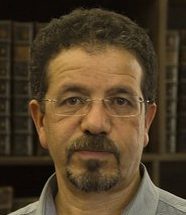 Professor Mohamed-Salah Omri (Oxford University)
Professor Mohamed-Salah Omri (Oxford University)
Mohamed-Salah Omri is Tutorial Fellow in Modern Arabic at St John’s College, Oxford. He obtained a BA from the University of Tunis, his MA and PhD in comparative literature were completed at Washington University in St. Louis. His interests include modern Arabic literature, Francophone literature of the Maghreb, comparative and world literatures, literature and history. He is author of Nationalism, Islam and World Literature: sites of confluence in the writings of Mahmud al-Mas’adi (Routledge, 2006) and edited The Novelization of Islamic Literatures: the intersections of Western, Arabic, Persian, Urdu and Turkish Traditions (2007). He is founding member of Oxford Comparative Criticism and Translation and Chair of the ICLA committee on Comparative history of literatures in the Islamic world.
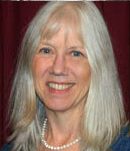 Professor Marilyn Booth (Oxford University)
Professor Marilyn Booth (Oxford University)
Marilyn Booth is Khalid bin Abdullah Al Saud Professor in the Study of the Contemporary Arab World and Professor and Director of Research, Faculty of Oriental Studies, Oxford since 2015. Prior to this, Marilyn taught at Brown University, University of Illinois Urbana-Champaign, Edinburgh and New York University Abu Dhabi. She completed a BA at Harvard-Radcliffe College and PhD at St. Antony’s College. Marilyn’s current research focuses on nineteenth-century feminism and women’s writing in Egypt and Ottoman Syria along with the emergence of the Arabic novel. Recent publications include Classes of Ladies of Cloistered Spaces: Writing Feminist History through Biography in Fin-de-Siècle Egypt (2015) and May Her Likes Be Multiplied: Biography and Gender Politics in Egypt (2001).
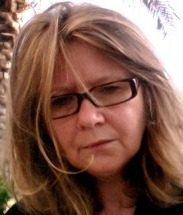 Professor Caroline Rooney (University of Kent)
Professor Caroline Rooney (University of Kent)
Caroline Rooney is Professor of African and Middle Eastern Studies in the Centre for Colonial and Postcolonial Studies at the University of Kent. She studied at the University of Cape Town before taking up a Beit Fellowship at Oxford University. Her research mainly engages in postcolonial studies and theory and Arab cultural studies, focusing on liberation struggles and their aftermaths in both sub-Saharan Africa, North Africa and the Middle East. Her current work is concerned with contemporary Arab writing and popular culture in relation to the Arab uprisings, and explores the resources of arts activism both critically and creatively.
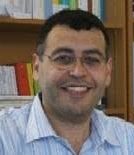 Professor Ziad Elmarsafy (King’s College London)
Professor Ziad Elmarsafy (King’s College London)
Ziad Elmarsafy is Professor of Comparative Literature at King’s College London. He is the author of Sufism in the Contemporary Arabic Novel (2012) and has published in areas including the literature and culture of early modern France, the Enlightenment and modern Arabic literature. His current research focuses on the reception of Sufi themes and ideas by Western thinkers and writers.
 Professor Gonzalo Fernandez Parrilla (Autonomous University of Madrid)
Professor Gonzalo Fernandez Parrilla (Autonomous University of Madrid)
Gonzalo Fernandez Parrilla is Associate Professor of Arabic Literature at the Autonomous University of Madrid. He is the author of La literatura marroquí contemporánea (2006), a history of modern Moroccan literature. He is the director of the Spanish series of Arabic literature Memorias del Mediterráneo, published by Ediciones del Oriente y del Mediterráneo.
Professor Catherine Servan-Schreiber (CNRS Paris)
Catherine Servan-Schreiber is Research Fellow at the Centre for South Asia (CNRS/EHESS), Paris, and she also teaches Bhojpuri and Avadhi languages and literature at INALCO (Paris).
As part of the MULSOIGE project, Sevan-Schreiber led a week-long course with Camille Buat, exploring living traditions in the Bhojpuri language of Northern India. This course shared methodologies for studying the circulation of Bhojpuri texts, singers, and labourers and explored the interface between literature and history.
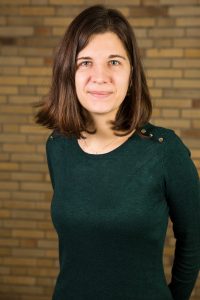 Camille Buat
Camille Buat
Camille Buat (University of Göttingen) studies the patterns of labour mobility linking up the Northern Indian regions of Bihar and Uttar Pradesh, on the one hand, to Eastern India (Bengal and Assam) from the second half of the 19th century to the present.
As part of the MULSOIGE project, Buat led a week-long course with Professor Catherine Servan-Schreiber, exploring living traditions in the Bhojpuri language of Northern India. This course shared methodologies for studying the circulation of Bhojpuri texts, singers, and labourers and explored the interface between literature and history.
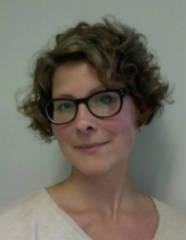 Dr Nora Parr
Dr Nora Parr
Dr Nora Parr is Postdoctoral Researcher for the Open World Research Initiative’s project on Creative Multilingualism. Her work explores the nexus of literature, theory, and translation. Her research for the AHRC-funded project examines notions of trauma in Arabic Literature from the Levant and Egypt.
Dr Nora Parr has contributed to MULOSIGE’s Syllabus “Multilingual perspectives on gender in world literature”, as well as giving the talk “Un-othering ‘trauma’ through Arabic fiction”.
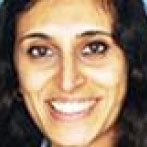 Dr Shital Pravinchandra (QMUL)
Dr Shital Pravinchandra (QMUL)
Shital Pravinchandra is a Lecturer in Comparative Literature and Culture at Queen Mary University of London.
She has published in Cultural Critique, Interventions and New Literary History. She is currently completing her first monograph Same Difference: Postcolonial Studies in the Age of Life Science. Her new project considers world literature and the short story.
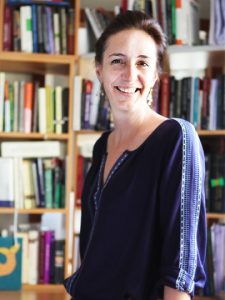 Dr Laetitia Zecchini (CNRS Paris)
Dr Laetitia Zecchini (CNRS Paris)
Dr Laetitia Zecchini is a researcher at CNRS Paris. She works on contemporary Indian poetry, with a special focus on the “Bombay poets” as well as studying the politics of literature/art, modernisms in India, postcolonial criticism and questions of cosmopolitanism, translation and world literatures.
Zecchini discussed the struggle for cultural freedom and the poetics and politics of Cold War Bombay at the Postcolonial Print Cultures Conference. You can listen to the podcast here.
S.Shankar (University of Hawai’i at Manoa)
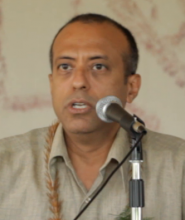 Shankar is a critic, novelist, translator and Professor of English at The University of Hawaiʻi at Mānoa. He is the author most recently of the novel Ghost in the Tamarind and the critical volume Flesh and Fish Blood: Postcolonialism, Translation, and the Vernacular. He is also the co-editor of Caste and Life Narratives, and blogs at sshankar.net.
Shankar is a critic, novelist, translator and Professor of English at The University of Hawaiʻi at Mānoa. He is the author most recently of the novel Ghost in the Tamarind and the critical volume Flesh and Fish Blood: Postcolonialism, Translation, and the Vernacular. He is also the co-editor of Caste and Life Narratives, and blogs at sshankar.net.
Shankar led a reading group on the subject of affect as well contributing to the MULOSIGE blog in his piece on postcolonial philology.
Professor Nick Harrison
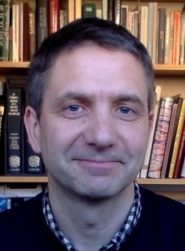
Nick Harrison is Professor of French and Postcolonial Studies at King’s College London. He recently published Our Civilizing Mission:The Lessons of Colonial Education (Liverpool University Press: 2019), an exploration of colonial education and a response to current anxieties about the historical and conceptual foundations of the ‘humanities’.
Harrison led a seminar for the MULOSIGE project on Teaching in a time of crisis: colonial education and the world of literature.
Professor Aamir Mufti
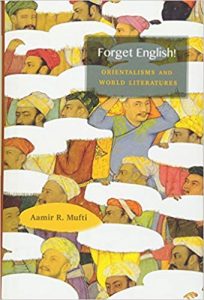 Professor Aamir Mufti (UCLA) is interested in understanding a range of forms of inequality in the contemporary world and how they impede the possibilities for historically autonomous action by social collectivities in the South.
Professor Aamir Mufti (UCLA) is interested in understanding a range of forms of inequality in the contemporary world and how they impede the possibilities for historically autonomous action by social collectivities in the South.
Aamir Mufti discussed the place of the English language in a rountable on his book Forget English! Orientalisms and World Literatures.
Professor Galin Tihanov (QMUL)
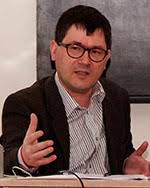
Galin Tihanov is the George Steiner Professor of Comparative Literature at QMUL. He is the author of five books, (co)editor of ten volumes of scholarly essays, and his current research focuses on world literature, cosmopolitanism, and exile. His most recent book is “The Birth and Death of Literary Theory: Regimes of Relevance in Russia and Beyond” (Stanford UP, 2019); he is currently writing “Cosmopolitanism: A Very Short Introduction” for Oxford UP.
Tihanov discussed the place of the English language in a roundtable with reference to Aamir Mufti’s book Forget English! Orientalisms and World Literatures.
Dr Florian Mussgnug (UCL)
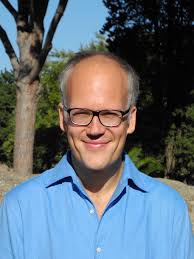
Dr Florian Mussgnug (UCL) has published The Eloquence of Ghosts (2010, winner of the 2012 Edinburgh Gadda Prize) and is working on a comparative study of the contemporary European novel: Twenty-First Century Apocalypse Fiction: Revelation, Resilience, Radical Hope.
Mussgnug contributed the reading list World Literature and Planetary Catastrophe to the MULOSIGE Syllabi project. He also discussed the place of the English language in a roundtable with reference to Aamir Mufti’s book Forget English! Orientalisms and World Literatures.
Dr Katherine Hennessey (QMUL)
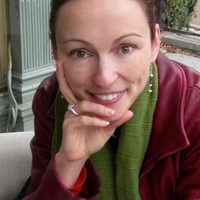
Dr Katherine Hennessey is a Research Fellow with the Global Shakespeare programme at the University of Warwick and Queen Mary University of London (2014-16), and a Moore Institute Visiting Fellow at the National University of Ireland, Galway (late 2016). From 2009 to 2014 she lived in Sana’a, Yemen, researching contemporary Yemeni theatre.
She discussed her work on Shakespeare in Yemen with the MULOSIGE project in a special seminar.
Professor Sanjay Seth (Goldsmiths)
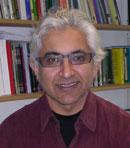
Professor Sanjay Seth (Goldsmiths) writes on modern Indian history, political and social theory, postcolonial theory and international relations. He is particularly interested in how modern European ideologies, and modern Western knowledge more generally, ‘travelled’ to the non-Western world.
Listen to his MULOSIGE podcast, The Code of History and Non-Western Pasts: Does Historiography Travel.
Professor Venkat Mani (University of Wisconsin-Madison)
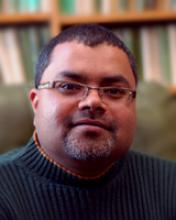
Venkat Mani is Professor, Department of German and faculty affiliate, DAAD Center for German and European Studies, Global Studies, Center for South Asia, and the Center for the History of Print and Digital Culture at the University of Wisconsin-Madison. His research and teaching focus on 19th to 21st Century German literature and culture, world literature in translation, migration in the German and European context, book and digital cultural histories, and theories of cosmopolitanism, globalization, post-colonialism, and transnationalism.
In this MULOSIGE podcast on Bibliomigrancy Professor Mani draws on his book Recoding World Literature to politicise the idea of world literature
Associate Professor Eric Calderwood (University of Illinois at Urbana-Champaign)

Eric Calderwood is an Assistant Professor of Comparative Literature and Arabic at the University of Illinois at Urbana-Champaign and the author of Colonial al-Andalus: Spain and the Making of Modern Moroccan Culture (Harvard University Press, April 2018).
He discussed his book with MULOSIGE and argued that argues that Morocco’s Andalusi identity is not a medieval legacy, but is, instead, a modern invention that emerged from the colonial encounter between Spain and Morocco in the nineteenth and twentieth centuries.
Yasmine Seale
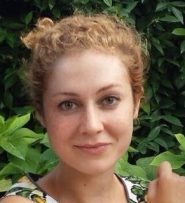 Yasmine Seale is a writer and translator from Arabic and French, currently living in Istanbul. Her translation of Aladdin was published in 2018 by W. W. Norton. She is working on a new translation of the Thousand and One Nights for the same publisher.
Yasmine Seale is a writer and translator from Arabic and French, currently living in Istanbul. Her translation of Aladdin was published in 2018 by W. W. Norton. She is working on a new translation of the Thousand and One Nights for the same publisher.
MULOSIGE hosted a workshop with Seale and Robin Moger on Collaboration, Experiment and Voice in Translation.
Robin Moger
 Robin Moger is a translator of Arabic to English prose and poetry, currently living in Cape Town. He has translated a number of novels, primarily by contemporary Egyptian authors. His translation of Yasser Abdel Hafez’s The Book of Safety won the 2017 Saif Ghobash Banipal Prize for Arabic Literature in Translation.
Robin Moger is a translator of Arabic to English prose and poetry, currently living in Cape Town. He has translated a number of novels, primarily by contemporary Egyptian authors. His translation of Yasser Abdel Hafez’s The Book of Safety won the 2017 Saif Ghobash Banipal Prize for Arabic Literature in Translation.
MULOSIGE hosted a workshop with Moger and Yasmine Seale on Collaboration, Experiment and Voice in Translation.
Professor Marina Warner
 Professor Marina Warner is a Professorial Research Associate at SOAS University of London, Professor of English and Creative Writing at Birkbeck College, University of London, and a Distinguished Fellow of All Souls College, Oxford. She was awarded the Holberg Prize in 2015. Since 2016, she has been working on the theme of Sanctuary and culture in times of dislocation and diaspora, developing the international Stories in Transit project, which aspires to work with displaced individuals, whatever their status, asking: “What role can imaginary narratives play in contemporary conditions?” and “Can make-believe help make-truth?”
Professor Marina Warner is a Professorial Research Associate at SOAS University of London, Professor of English and Creative Writing at Birkbeck College, University of London, and a Distinguished Fellow of All Souls College, Oxford. She was awarded the Holberg Prize in 2015. Since 2016, she has been working on the theme of Sanctuary and culture in times of dislocation and diaspora, developing the international Stories in Transit project, which aspires to work with displaced individuals, whatever their status, asking: “What role can imaginary narratives play in contemporary conditions?” and “Can make-believe help make-truth?”
Warner and Wen-chin Ouyang mediated a workshop with Moger and Yasmine Seale on Collaboration, Experiment and Voice in Translation.
Dr Vayu Naidu
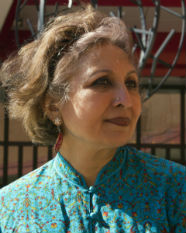
Author and performer Dr Vayu Naidu gave a storytelling performance at N4 Library with Melinda Maxwell.
Cultural binaries immersing characters in challenging interior landscapes, while speaking across borders is a feature of Naidu’s writing. She also convenes southern storytelling and writing residencies.
Professor Levi Thompson
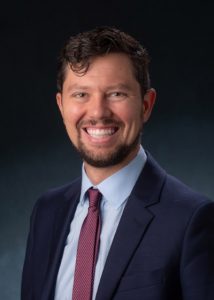
Levi Thompson is an Assistant Professor of Arabic at the University of Colorado, Boulder. He has published in Transnational Literature, The Routledge Handbook of Arabic Translation, (eds. Sameh F. Hanna, Hanem El-Farahaty and Abdel Wahab Khalifa) and Persian Literatures as World Literature, Literatures as World Literature (ed. Thomas Oliver Beebee).
He gave the talk “Re-Orienting Modernism: Mapping East-East Exchanges Between Arabic and Persian Poetry” as part of the MULOSIGE project, as well as contributing a guided reading list for our Syllabi.
Professor Javed Majeed

Professor Javed Majeed is Professor of English and Comparative Literature at King’s College London. He is the author of numerous books: Muhammad Iqbal: Islam, Aesthetics and Postcolonialism (London, New York and Delhi: Routledge, 2008); Autobiography, Travel and Postnational Identity. Nehru, Gandhi and Iqbal (Basingstoke UK and New York: Palgrave Macmillan, 2007); and Ungoverned Imaginings. James Mill’s The History of British India and Orientalism (Oxford: Clarendon Press, 1992). He is currently completing a monograph on G.A. Grierson and the Linguistic Survey of India.
He has given two talks for MULOSIGE, Grierson’s Linguistic Survey of India and the Colonial Archive and Baithak: Professor Javed Majeed on language and colonialism, as well as leading a reading group on the Lingustic Survey of India.
Professor James Procter (NCL)

Professor James Procter is Director of Research for the School of English Literature, Language and Linguistics at Newcastle University. He studies overarching interest is in how literary and cultural production in Britain since the 1940s handles the period in which its empire comes home to roost.
Procter spoke on a roundtable at the Postcolonial Print Cultures Conference, noting that the conference invited us to think not only about significant geographies, but also temporalities. This returns to his own work on radio (the BBC’s Caribbean Voices series and its archives) and the anticipated death of print.
Matt Reeck (UCLA)
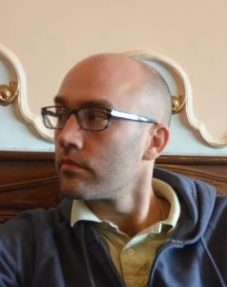
Matt Reeck has a PhD from the Comparative Literature Department at UCLA. His articles on French, Hindi, and Urdu literature have appeared in various journals and edited volumes. His translations have won him National Endowment for the Arts and PEN-Heim translation grants. His forthcoming translations include French Guiana — Memory Traces of the Penal Colony from the French of Patrick Chamoiseau (Wesleyan UP), and The Chronicle from the Urdu of Intizar Husain (Penguin India).
Reeck contributed the reading list “The Poetics of the Orphan in Postcolonial Writing” as part of MULOSIGE’s Syllabi project.
Emad El-Din Aysha
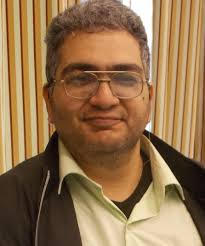
Emad El-Din Aysha is a bilingual (English, Arabic) academic, journalist, translator and aspiring author currently residing in Cairo, Egypt. He was born in the United Kingdom (1974) to Arab parents and attained his PhD in International Studies at the University of Sheffield (2001), having completed his MA and BA at the same institution. He has taught at the American University in Cairo and British University in Egypt and has written for The Egyptian Gazette, Mada Masr, Cairo Scene, and Daily News Egypt. He is now a member of the Egyptian Society for Science Fiction (ESSF) and has published academic and newspaper articles on SF. His main sci-fi claims to fame are: “The Cymbals of Progress” (Dark Helix Press, Trump: Utopia or Dystopia anthology); “Lambs of the Desert” in R.N. Stephenson’s The Worlds of Science Fiction, Fantasy and Horror Volume IV; and “Better Late than Never: The Transmutations of Egyptian SF in the Work of Hosam El-Zembely” in Foundation: The International Review of Science Fiction.
He contributed to the MULOSIGE Syllabus Science, Literature and Development in the MENA region with Zahra Jannessari-Ladani and Jörg Matthias Determann.
Professor Zahra Jannessari-Ladani
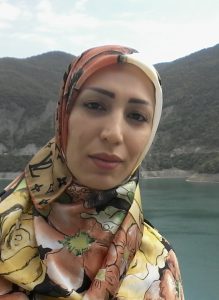 Zahra Jannessari-Ladani is an assistant professor of English Literature at the University of Isfahan. She is the Persian translator of Kristina Nelson’s The Art of Reciting the Quran and English editor of Quran Recitation Skills. She has also translated a number of Stanley G. Weinbaum’s SF stories to Persian for the first time. Her major contributions to the science fiction domain consist of her lecture “The Rise of the Pulps, 1900s-1930s” given to Lars Schmeink’s The Virtual Introduction to Science Fiction, and her chapter “John W. Campbell and his Writers” published in Leigh Grossman’s Sense of Wonder: A Century of Science Fiction. And her new book chapter, “Robert A. Heinlein in Historical and Cultural Context,” has been published in Rafeeq McGiveron’s Critical Insights: Robert A. Heinlein by the Salem Press. She is the writer of a number of articles published in diverse journals such as Research in Contemporary World Literature, Lesan Mobin, Translation Studies, etc. Her most recent publication, coauthored with Sharareh Kashi is “The Representation of Fukuyama’s Pathways to a Posthuman Future in Brave New World and Never Let Me Go” in the Journal of Literary studies. Her recent book, coauthored with Seyed Mohammad Marandi, is The Repercussions of Renaissance British Utopia in the 1920s-1930s American Science Fiction, published by the University of Isfahan Press, 2017.
Zahra Jannessari-Ladani is an assistant professor of English Literature at the University of Isfahan. She is the Persian translator of Kristina Nelson’s The Art of Reciting the Quran and English editor of Quran Recitation Skills. She has also translated a number of Stanley G. Weinbaum’s SF stories to Persian for the first time. Her major contributions to the science fiction domain consist of her lecture “The Rise of the Pulps, 1900s-1930s” given to Lars Schmeink’s The Virtual Introduction to Science Fiction, and her chapter “John W. Campbell and his Writers” published in Leigh Grossman’s Sense of Wonder: A Century of Science Fiction. And her new book chapter, “Robert A. Heinlein in Historical and Cultural Context,” has been published in Rafeeq McGiveron’s Critical Insights: Robert A. Heinlein by the Salem Press. She is the writer of a number of articles published in diverse journals such as Research in Contemporary World Literature, Lesan Mobin, Translation Studies, etc. Her most recent publication, coauthored with Sharareh Kashi is “The Representation of Fukuyama’s Pathways to a Posthuman Future in Brave New World and Never Let Me Go” in the Journal of Literary studies. Her recent book, coauthored with Seyed Mohammad Marandi, is The Repercussions of Renaissance British Utopia in the 1920s-1930s American Science Fiction, published by the University of Isfahan Press, 2017.
She contributed to the MULOSIGE Syllabus Science, Literature and Development in the MENA region with Emad El-Din Aysha and Jörg Matthias Determann.
Dr Neelam Srivastava
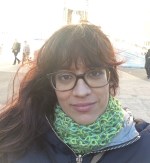 Dr Srivastava is a reader in Postcolonial and Comparative Literature at Newcastle University.
Dr Srivastava is a reader in Postcolonial and Comparative Literature at Newcastle University.
She works on Indian/South Asian literature in English, theories and narratives of violence, Italian colonialism and postcolonial theory. Srivastava recently published Italian Colonialism and Resistances to Empire, 1930-1970, which has come out in 2018 with Palgrave’s Cambridge Series in Colonial and Postcolonial Histories. This cultural history of Italian colonialism examines the public discourses and perceptions arising from specific moments of colonial/anti-colonial engagement: the invasion of Ethiopia by Mussolini in 1935, discourses surrounding Italian trusteeship in Somalia, and intellectuals’ reactions to the Algerian war of 1954-62.
Srivastava gave the lecture Translating Revolution: The Impact of Frantz Fanon and the Renovation of European Radical Thought for MULOSIGE in February 2016.
Associate Professor Mostafa Minawi (Cornell University)
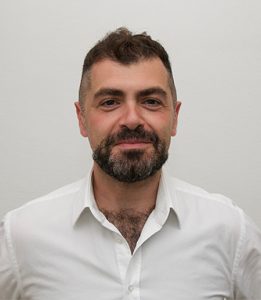
Associate Professor Mostafa Minawi is a historian of the Ottoman Empire, an assistant professor of history, and the director of the Ottoman and Turkish Studies initiative at Cornell University. His latest book, The Ottoman Scramble for Africa: Empire and Diplomacy in the Sahara and the Hijaz, was published by Stanford University Press in 2016.
Dr Minawai gave the talk From Istanbul to Addis Ababa: South-South Relations at the Height of Inter-Imperial Competition for the MULOSIGE project.
Dr Rita Sakr (Maynooth University)
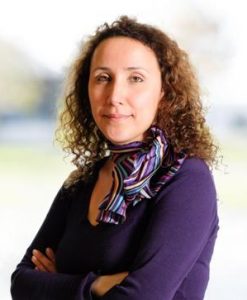
Dr Rita Sakr is a Lecturer in Postcolonial and Global Literature in the Department of English at Maynooth University. She is the author of Monumental Space in the Post-Imperial Novel: An Interdisciplinary Study (Continuum, 2012; and in paperback, Bloomsbury Academic, 2013), and of ‘Anticipating’ the 2011 Arab Uprisings: Revolutionary Literatures and Political Geographies (Palgrave, 2013). With Caroline Rooney, she is co-editor of The Ethics of Representation in Literature, Art and Journalism: Transnational Responses to the Siege of Beirut (Routledge, 2013) and co-director and co-producer of the RCUK-funded documentary on Beirut, White Flags (2014). With Finn Fordham, she co-edited James Joyce and the Nineteenth-Century French Novel (2011). Her recent publications focus on migration, human rights, and urban studies; her current monograph project is titled Global Arab Literary Geographies.
Dr Sakr gave the talk Imagining Mid-Nineteenth-Century Beirut as a ‘City of the World’ for the MULOSIGE project.
Dr Anna Bernard (KCL)
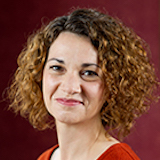
Dr Anna Bernard‘s research is concerned with the literature and culture of anti-colonial struggles that have persisted after the formal end of European imperialism. Her first book, Rhetorics of Belonging: Nation, Narration, and Israel/Palestine (2013), examines Palestinian and Israeli writers’ responses to the expectation that their work will ‘narrate’ the nation. Against a general tendency in postcolonial studies to question the validity of ideas of nationhood, the book seeks to reclaim the nation as a site of oppositional politics in the Palestinian context, while also working towards a relational literary history of Palestine/Israel.
Bernard is currently working on a book called International Solidarity and Culture: Nicaragua, South Africa, Palestine, 1975-1990. The book considers appeals for solidarity in literature and film that was circulated among British participants in the Nicaragua solidarity campaign, the anti-apartheid movement, and the Palestine solidarity movement.
Dr Bernard gave the seminar International Solidarity and World Literature for the MULOSIGE project.
Professor Clarissa Vierke (University of Bayreuth)
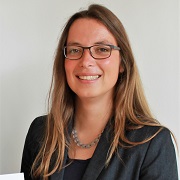
Clarissa Vierke is a Professor of Literatures in African Languages at the University of Bayreuth. Vierke has worked on manuscript cultures in Eastern Africa and travelling texts along the East African Coast from Kenya to Mozambique and across the Indian Ocean. She has also expanded her interest in Aesthetics to focus on other poetic genres.
Professor Vierke gave a lecture on “The Swahili coast as a literary contact zone and what we can learn from it” for the Mulosige project.
Professor Virginia Jackson (UC Irvine)
Professor Virginia Jackson is Chair of Rhetoric and Critical Theory in the Departments of English and Comparative Literature at UC Irvine. She is the author of Dickinson’s Misery: A Theory of Lyric Reading (Princeton UP, 2005), which won the Christian Gauss Prize and the MLA Prize for a First Book. Her next book, Before Modernism: The Invention of American Poetry is forthcoming from Princeton UP. In her current project, she is thinking about versions of nineteenth-century America in the work of a few contemporary black poets in the US. She is one of the founding members of the Historical Poetics working group.
Jackson spoke at the LINKS event Lyric Orientalism and and the Invention of World Poetry.
Assistant Professor Roanne Kantor (Stanford)
 Roanne Kantor is Assistant Professor of English at Stanford University. Her primary field is Global Anglophone literature and its relationship to other literary traditions of the Global South Her book project, Even If You Gain the World, focuses on a century of encounters between Latin American and South Asian authors writing in English, Spanish, Hindi and Urdu, and its impact on the state of global Anglophone literature in the present. Recent scholarship appears in Comparative Studies of South Asia, Africa, and the Middle East, South Asia: Journal of South Asian Studies, and Transmodernity: Journal of Peripheral Culture in the Luso-Hispanic World. An article based on this talk will be published in Comparative Literature in 2018. Kantor is also the translator of Juan Jose Saer’s The One Before (2015) and the winner of the Susan Sontag Prize for Translation. Kantor has taught at Boston University, Brandeis University, and the University of Texas, Austin, where she earned her MA and PhD.
Roanne Kantor is Assistant Professor of English at Stanford University. Her primary field is Global Anglophone literature and its relationship to other literary traditions of the Global South Her book project, Even If You Gain the World, focuses on a century of encounters between Latin American and South Asian authors writing in English, Spanish, Hindi and Urdu, and its impact on the state of global Anglophone literature in the present. Recent scholarship appears in Comparative Studies of South Asia, Africa, and the Middle East, South Asia: Journal of South Asian Studies, and Transmodernity: Journal of Peripheral Culture in the Luso-Hispanic World. An article based on this talk will be published in Comparative Literature in 2018. Kantor is also the translator of Juan Jose Saer’s The One Before (2015) and the winner of the Susan Sontag Prize for Translation. Kantor has taught at Boston University, Brandeis University, and the University of Texas, Austin, where she earned her MA and PhD.
Kantor gave the talk A Case of Exploding Markets: Latin American and South Asian Literary “Booms” in a Comparative Perspective, excerpts of which can be read here. You can listen to Kantor’s talk via the MULOSIGE podcast series.
Dr Thomas Langley (KCL)
Dr Thomas Langley is a Lecturer in Comparative and English Literature at King’s College London. His research is interested in thinking about Italy as a postcolonial entity, and particularly in relationships between literary anti-Fascisms and literary anti-colonialisms in Italy and India in the twentieth century.
Langley gave a seminar about Antonio Gramsci’s Anti-colonial Imagination for the MULOSIGE project. You can listen to the podcast from the talk here.
Associate Professor Hala Halim (NYU)
Hala Halim is an Associate Professor of Comparative Literature and Middle Eastern Studies at New York University. She is the author of Alexandrian Cosmopolitanism: An Archive (Fordham University Press, 2013), which received an Honorable Mention from the American Comparative Literature Association for the Harry Levin Prize for Best First Book in Comparative Literature. Her translation of a novel by Mohamed El-Bisatie, Clamor of the Lake, won an Egyptian State Incentive Award.
Halim gave a talk titled “Lotus Journal: Translating along the Afro-Asian Hyphen” for the MULOSIGE project. Her presentation drew on her previous publications on Lotus: Afro-Asian Writings. These are the 2012 article “Lotus, the Afro-Asian Nexus, and Global South Comparatism” in Comparative Studies of South Asia, Africa and the Middle East, and the 2017 essay “Afro-Asian Third-Worldism into Global South: The Case of Lotus Journal” in the digital scholarship project Global South Studies. The presentation asked – among other things – what conjunctions between editing and translating might we discern in the endeavour to anthologize Afro-Asian literature, and how do they come to inflect our understanding of the notion of the “canon”?
Professor Pablo Mukherjee (Warwick)
Professor Pablo Mukherjee teaches on the English and Comparative Literary Studies program at the University of Warwick. Among Professor Mukherjee’s recently completed projects are the books Natural Disasters and Victorian Empire:Famines, Fevers and the Literary Cultures of South Asia (Palgrave Macmillan: 2013) and Final Frontiers: Science Fiction and Techno-Science in Non-Aligned India (Liverpool University Press: forthcoming 2019).
Mukherjee gave the lecture Famines, Governance and (Post-) colonial literatures: an eco-critical perspective on Rudyard Kipling and Mahasweta Devi” for the MULOSIGE project, discussing how mass disaster events such as famines, epidemics, and floods are not exceptional, but define the ‘normal’ everyday life-world of the modern colonial and post-colonial societies.
Professor Ronit Ricci (Hebrew University of Jerusalem)
Professor Ronit Ricci is the Sternberg-Tamir Chair in Comparative Cultures and Associate Professor in the departments of Asian studies and comparative religion at the Hebrew University of Jerusalem. She holds a PhD in comparative literature from the University of Michigan. Her interests include translation studies, Javanese and Malay literature, multilingual manuscripts, the history and literary culture of the Sri Lankan Malays, and scripts. She is the author of Islam Translated: Literature, Conversion, and the Arabic Cosmopolis of South and Southeast Asia (University of Chicago, 2011), co-editor of Translation in Asia: Theories, Practices, Histories (St. Jerome, 2011), and editor of Exile in Colonial Asia: Kings, Convicts, Commemoration (University of Hawaii, 2016).
Ricci led a discussion of essays relating to Multilingual Sri Lanka I: Itineraries


